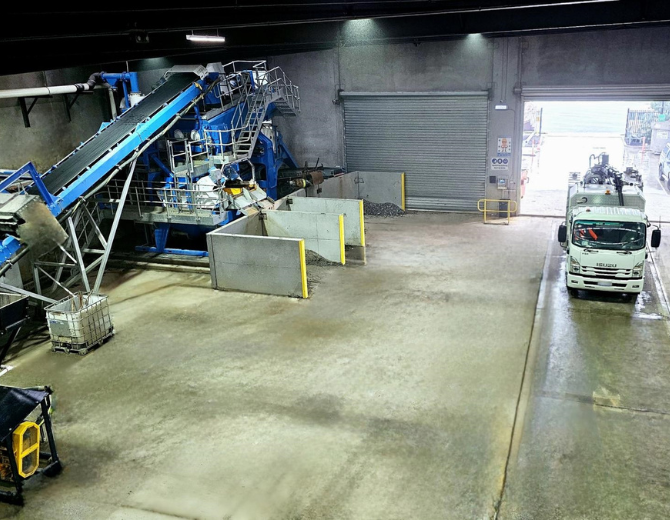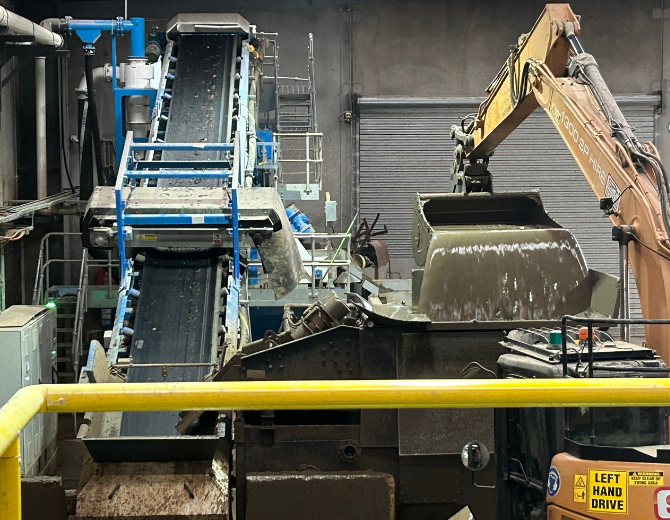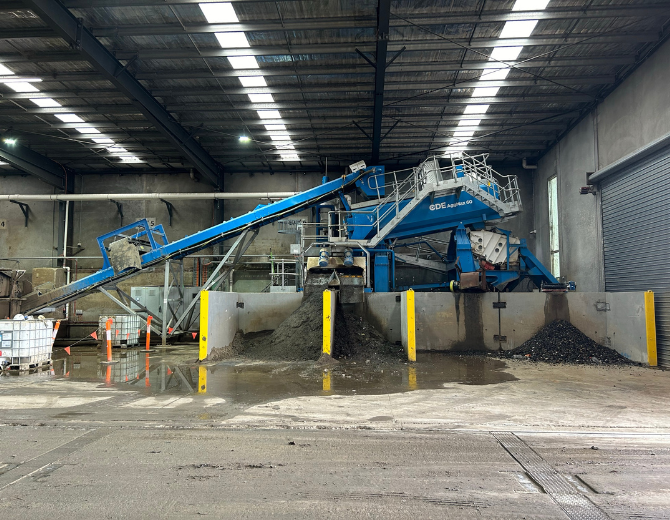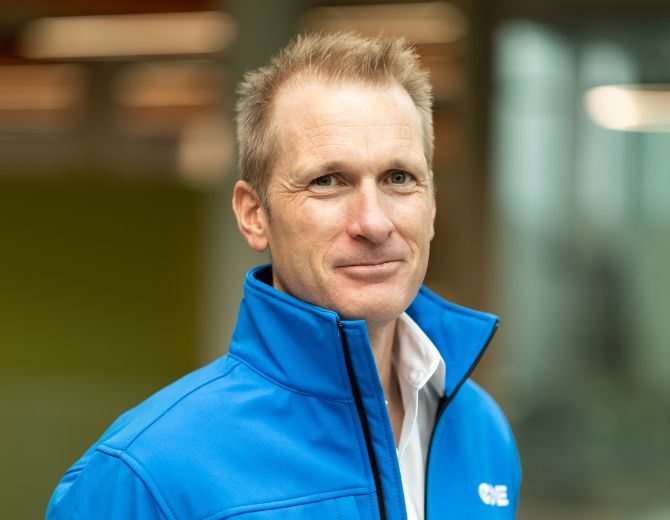As featured in Waste Management Review, September 2024
Mainstream Recycling enlists the help of wet processing experts CDE to extract maximum recovery from waste.
They might be mainstream by name, but certainly not by nature. The team at Mainstream Recycling, a division of TDG Environmental, is prepared to look outside the conventional to find sustainable solutions for waste. Its latest project has proven that sweating on the small stuff can pay dividends.

TRANSFORMING WASTE
Mainstream Recycling has partnered with CDE to refine soil wastes into resources for reuse in the landscape and building industries. While CDE is well known for large-scale plants – installing the first Australian construction and demolition washing plant in Victoria – this latest project is seen as a litmus test for smaller-scale operations to lay the foundations for a circular economy.
“Our first plants were generally full turnkey solutions,” says Daniel Webber, CDE’s Australasian General Manager. “But there’s plenty of opportunities in major cities and rural areas for more compact systems to transform waste into valuable resources and protect natural reserves that are in decline. “That’s where we see the circular economy moving as we head toward maximum recyclability.” Environmental, social and governance considerations are more than just lip service at Mainstream Recycling, with the company having aggressive goals for landfill diversion and resource recovery.

EXPANDING SERVICES
With recycling depots in New South Wales and Victoria, the company recycles more than 95 per cent of the recovered waste it collects. It accepts liquid, sludge, drill slurries and solid wastes typically collected from stormwater assets such as pipes, pits, and Gross Pollutant Traps (GPTs), as well as street sweeper wastes and low level contaminated material. A unique separation technique then splits waste into water content, solid waste, and recyclable materials. Soil content is repurposed in the landscape industry, comingle content is recycled, and water is reused.
Tiaan Reader, Mainstream Recycling General Manager, says one of the company’s key strengths is its use of advanced recycling technologies for material separation, enhancing the quality and efficiency of the recycling process.

PROCESSING 30TPH
The installation of a new CDE wash plant at the Truganina facility in Victoria will allow the company to expand its services to a high-demand market. At full capacity the plant will process about 30 tonnes an hour, outputting various sized clean aggregates, washed sand, and organic lightweight waste.
Ferrous materials are also removed. Maximising the efficiency, the plant includes an AquaCycle, a high-rate thickener that recycles up to 90 per cent of the process water for immediate re-use in the system, designed to eliminate the need for settling ponds and minimise costly water consumption.
Tiaan says. “CDE’s plant will further refine our recovery process by increasing our recovery rate and product usability; increasing on our existing recovered outputs up to five or six and help us promote sustainable options to virgin material.” “It’s about getting the most out of a waste product.”

UNLOCKING POTENTIAL
Daniel Webber says it’s exciting to see the plant operational and the benefits it has. He says the modular design of the plant – it was built inside an existing facility while it continued to operate – is evidence of CDE’s ability to help other companies unlock their recycling potential.
“It was a big investment to make in the region last year when CDE opened national offices at Stapylton, Queensland,” Daniel says. “But we foresee market demand, and our customers need the local boots on the ground support that we can offer. “What we’re most excited about now is how this equipment will help Mainstream’s business growth and with our commitment to the local market, how we can help more companies achieve landfill reduction while creating saleable, useable products.”





